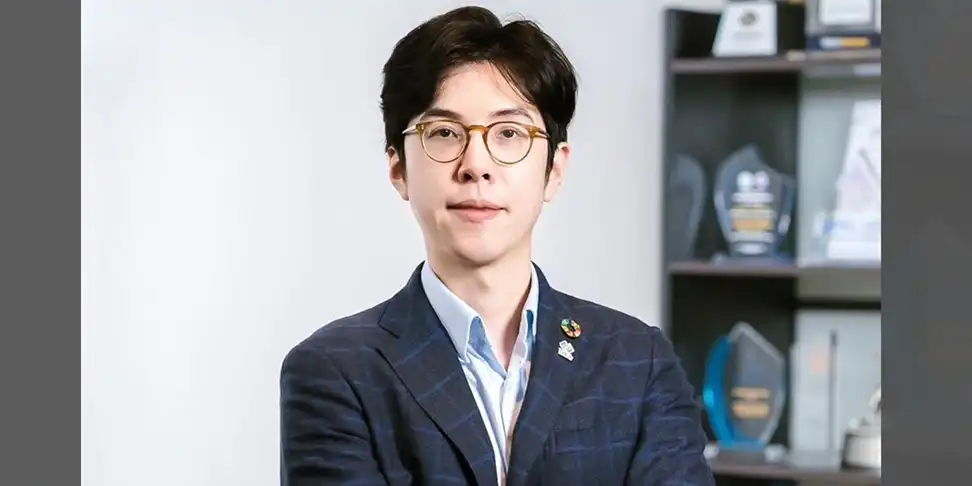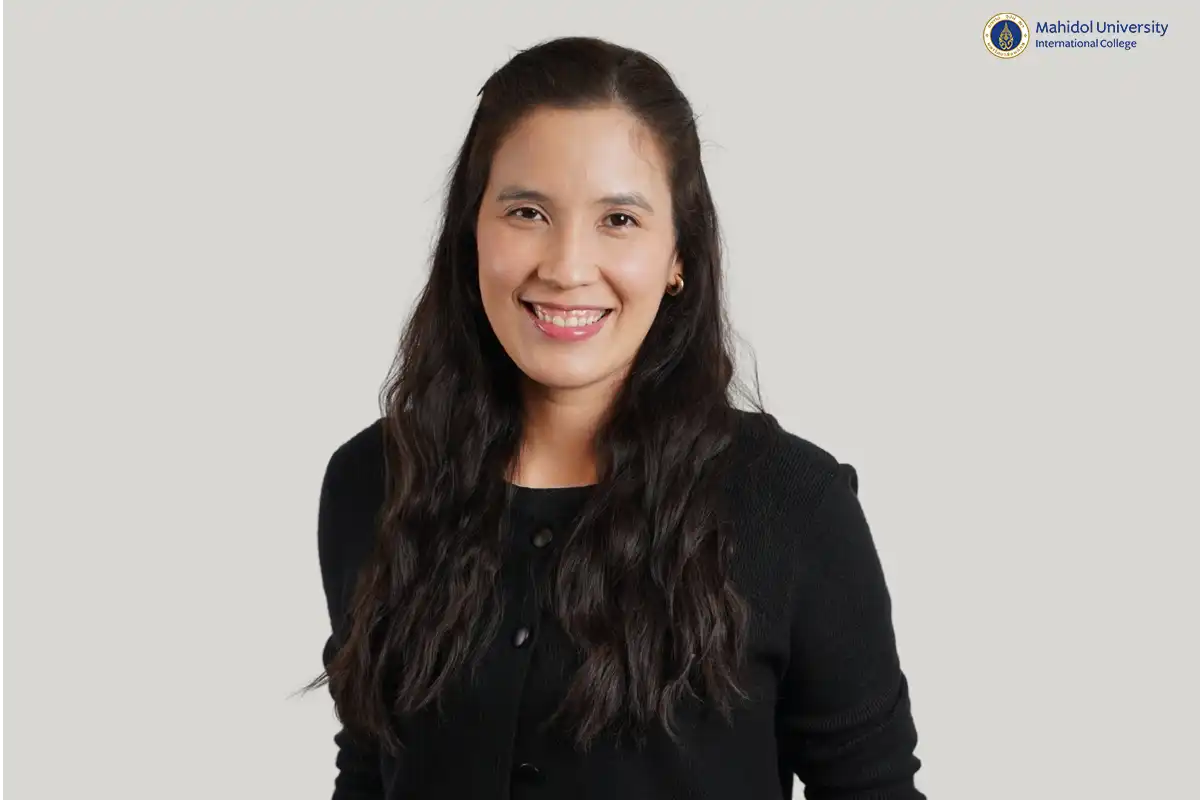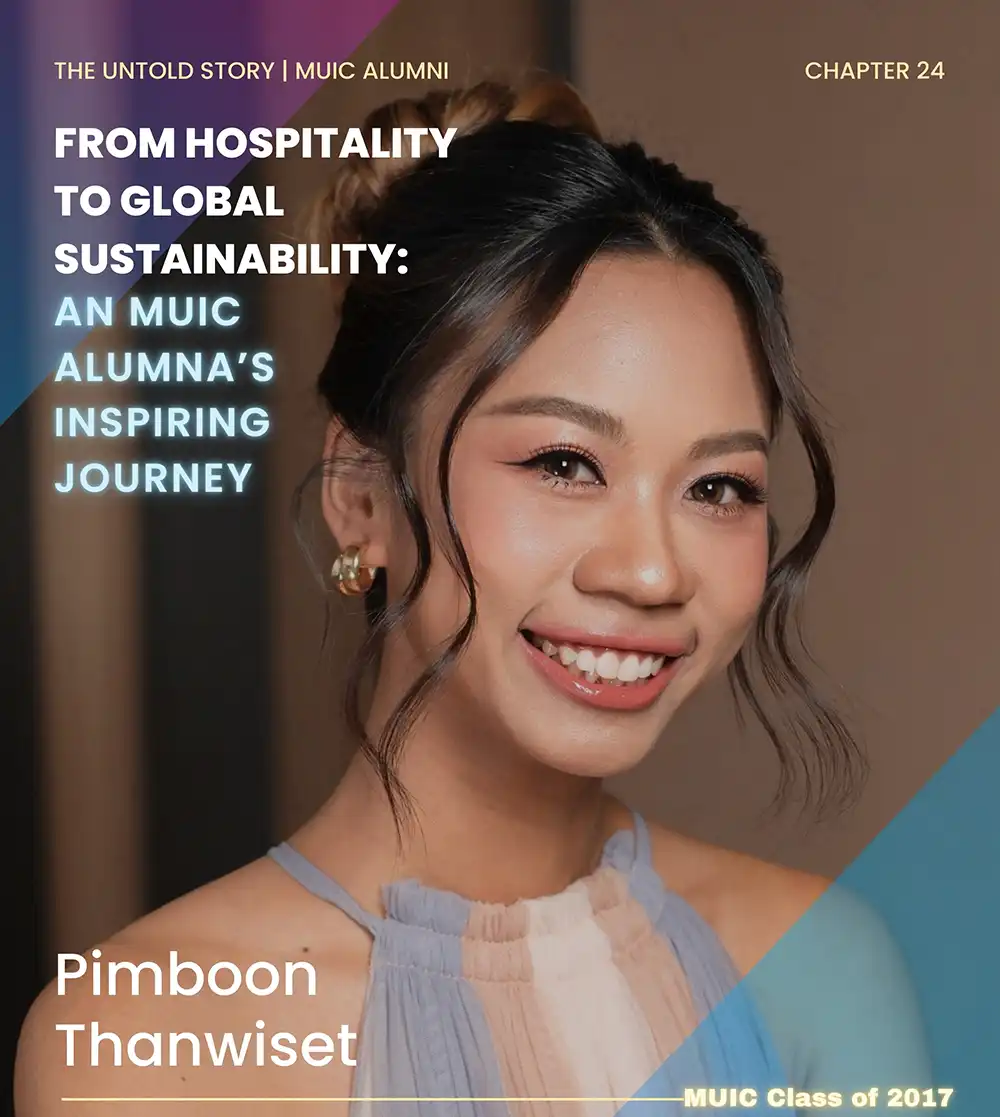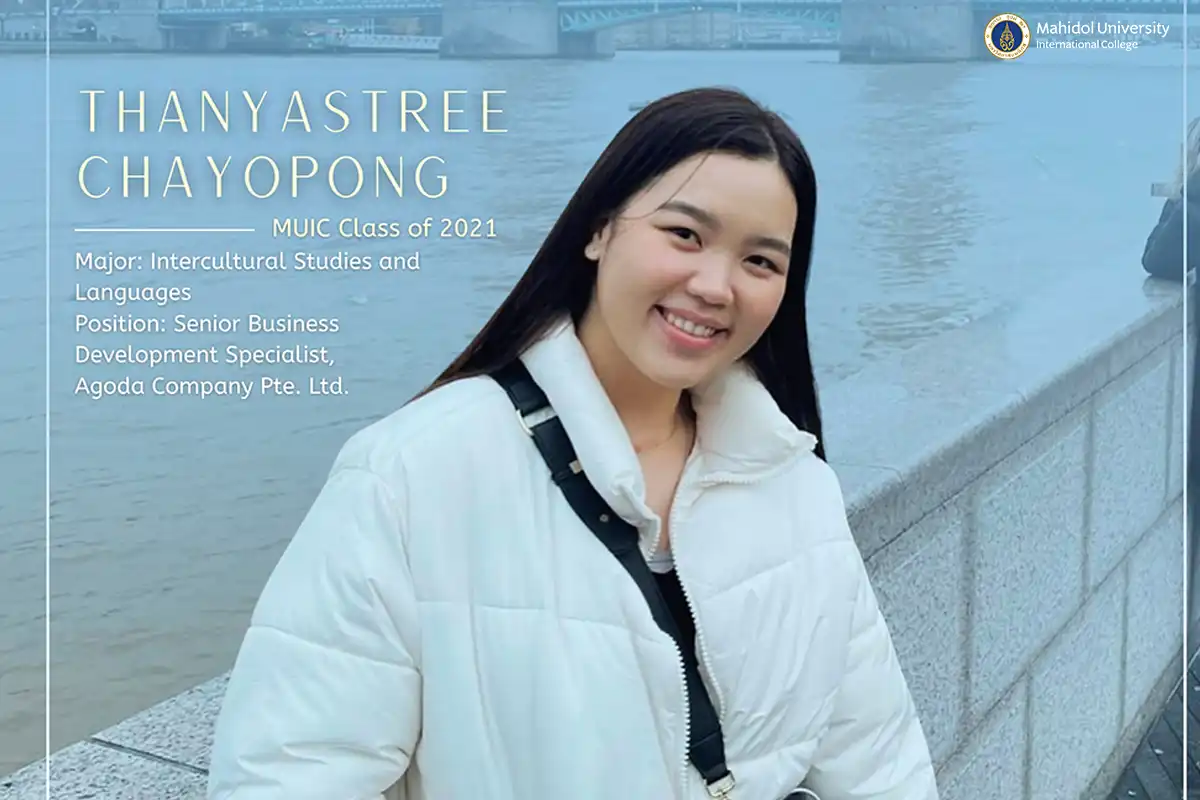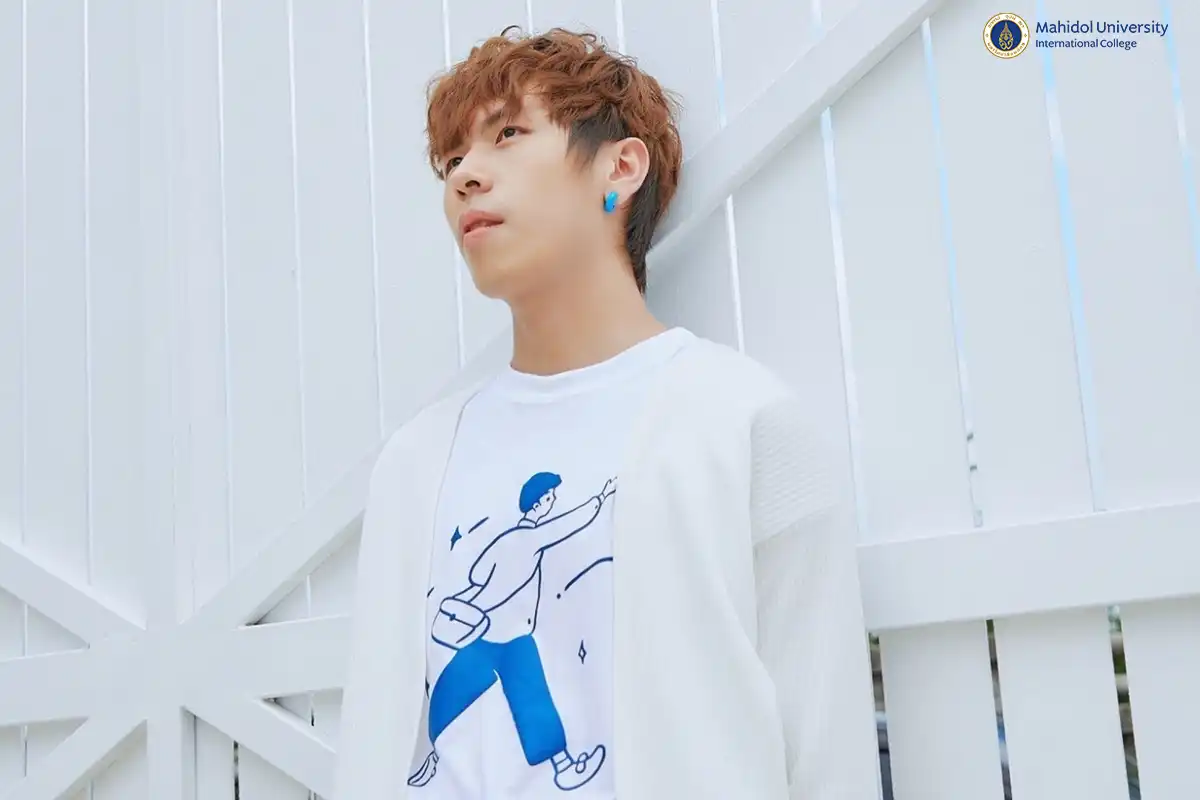Please choose a news and article category.
Recent MUIC Events
Change of major Trimester 2/2025-2026
MUIC Job Fair 2026
FAST-TRACK IELTS # 6
MUIC 360 Degrees
Pim’s story: the behind the scene
November 23, 2021 2022-06-15 5:24Pim’s story: the behind the scene
Get to know ‘Pim’ Wachiraya Lertgrai
I’m a psychologist. Other than being a mental health counselor to postgraduate doctors and students, I’m also a consultant to academic departments, workshops speaker, and a facilitator.
I started a job in psychology a few weeks after my last exam. The owner of Little Sprouts Children’s Centre took a chance on me who only got a minor and some experience working with kids. If I have to sum up what my year there had taught me, it is that real practice in the field is like relearning everything all over again; first impressions can be changed, there are no stupid questions, and patience and empathy go a long way. Everything was great there, and the reason I left was for my first master’s degree. The job I got after I came back is my current one: a psychologist at the Faculty of Medicine Siriraj Hospital. It’s been five years now. So, here I do several different things. Firstly, I do screening, counseling, and support for postgraduate doctors and students. I also co-facilitate for organizational workshops and sometimes get to do some sessions on my own. The topics varied from communication skills to relaxation techniques. I did a private consultant job for a UNICEF project at one point and that was interesting. It was on adapting a parenting program to Thai children. I also just finished my second master’s this year and just had a revised work agreement to match my new degree. It’s an exciting time and I can’t wait to see what comes next.
Why did you choose to study Biological Science at MUIC?
Before I answer this, we have to go back a bit. Fair warning, we psychologists don’t really give straight answers for the life of us! Anyway, when I was 9 years old, my buddy introduced me to Detective Conan. That was the point where I really learned about mysteries, investigations, but most importantly I learned about people. Particularly, how people can surprise you. Now, stay with me, I’m getting to the point, I promise! Fast-forward, I’m in high school and I was doing pretty well so there were so many options. I thought long and hard about what I wanted to do next. Then, it hit me. “CSI” and “Criminal Minds” were everything; together with my curiosity about people, I concluded that I wanted to learn about forensic science and crime scene investigation. It was kind of nice tying it all together. So, it was there where my unofficial science journey started, and the rest was history.
How was your MUIC days?
It started out a bit rough. I just came back to Thailand and I didn’t know anyone. It was an interesting journey of trial and error where I learned that some people looked nice but weren’t; while others seemed intimidating but turned out to be kind and understanding. That was when time flew by. There were lots of laughs and tears and misunderstandings and makeups; a lot of that happened at the study area, computer labs, tables in front of the library, and ร้านหน้าม. It was a roller coaster in those three-and-a-half years but I was never alone. It’s been almost 10 years, and I still talk to my MUIC friends as often as though we still meet at study area every day.
Why do you choose to become a psychologist?
At the end of my 3rd year, I did a short internship at CIFS (Central Institute of Forensic Science). It was a lot of fun. I got to extracted DNA from crime scene evidence, ran tests, and did the lab works. It was all I wanted to do. But I didn’t love it. Once I realized that, I began to reflect on my life again. Don’t get me wrong, it wasn’t instantaneous. It was a long reflective process. In the end, what I realized was that even though life experiences had changed me over the years there was one thing that didn’t – my curiosity about people.
Is being a psychologist stressful? How do you deal with anxiety when you are under pressure at work?
For the most part, not really. Although, at times it can be quite overwhelming. Sometimes I removed myself from the situation, if possible, take a coffee break or a bathroom break. It may not seem like much but there’s a lot of value in getting some time to gather your thoughts and take a few deep breaths. It’s also helpful to have allies at work. A five-minute conversation where you let out your frustrations and a pair of empathetic ears go a long way. If I was in no mood to be social, my airpods usually brought me peace too.
The current coronavirus pandemic has greatly affected all of us. Can you share what are the ways to reduce anxiety and stress during pandemic?
Creating routines help, but be sure to include both what needs to be done, and what helps relax you. Some mandatory things like certain chores or work/study-related responsibilities have to be on there of course. But the key here is to separate work/study time and personal time. During personal time, I recommend that you create a different corner at your place to create that “physical separation.” Do something for yourself. Spoil yourself a bit. You can choose to enjoy your hobbies there or spend some time pampering yourself like putting on a facial mask and listening to classical music. At other times, it’s also helpful to be social so maybe spending time with family and friends (in person/virtual) and do some activities together such as virtual dinners or online games. All in all, personal time either by yourself or connecting with others help us feel relaxed, less isolated, and also create a safe space where we can be ourselves.
The Importance of Mental Health Awareness, why does it matter?
I think the challenge with mental health is that it is so difficult to physically depict. But it’s been gaining more and more attention and I think that’s great. Attention leads to curiosity and that enable actions like seeking out more information. I think it matters because even though it’s been gaining attention, a lot of stigmas still exist. Mental health has no exact form and as more people are able to accept the elasticity of it, the less stigmatized it can become. Many people know what depression is but only some realize a happy person can be depressed too.
Messages to those who are facing with depression.
Your feelings are real even though it felt like you imagined it. Getting better doesn’t have to mean laughing or smiling; getting better can mean making that cup of coffee or taking a shower, or just simply showing up to things. And lastly, I want to remind anyone that needed to hear this: asking for help when you need to is one of the bravest things you can do.
Motto
“The flower that blooms in adversity is the most rare and beautiful.”
Ms. Wachiraya Lertgrai
Biological Sciences, MUIC Class of 2013
Psychologist, Faculty of Medicine Siriraj Hospital, Mahidol University
Below is a PDF file to view.







